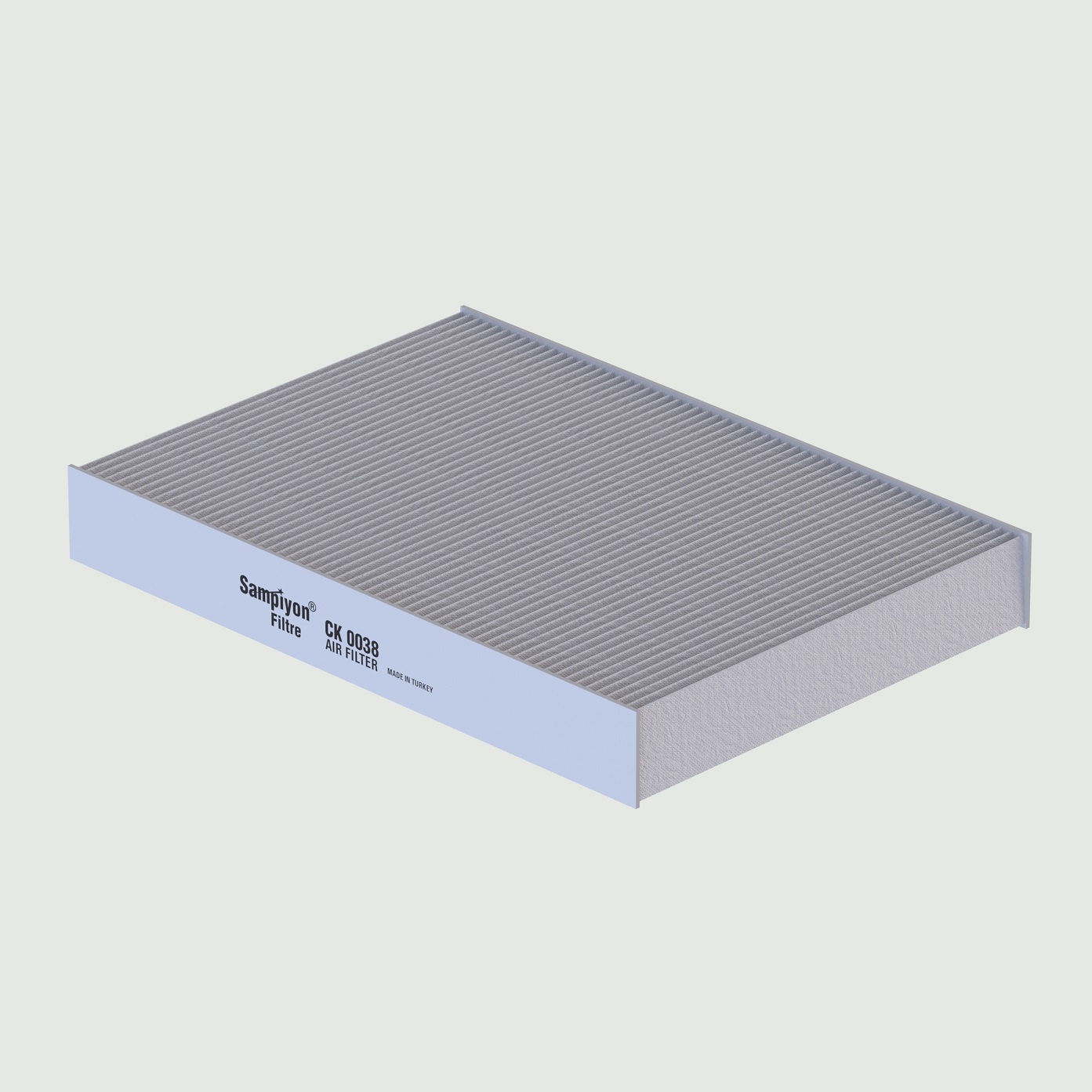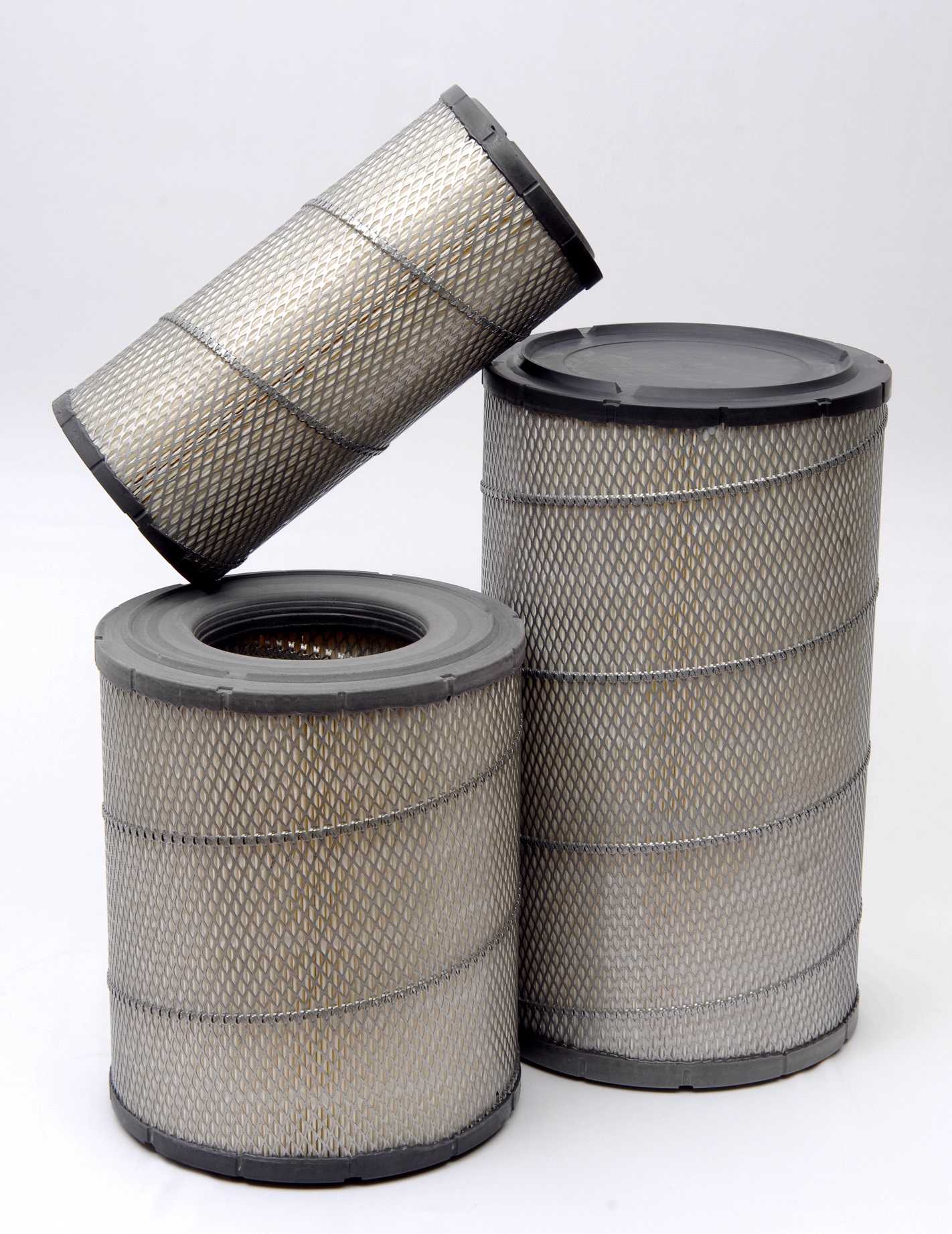
What is An Oil Filter?
Protect Your Engine Performance With Şampiyon Oil Filters!June 27, 2022
If the engine oil is the lifeblood of the engine, the oil filter is like its kidney! The kidneys in our bodies filter out the waste and remove excess fluid. The oil filter is also the most critical component of the lubrication system of the engine, which drains the oil from waste agents and impurities. These filters clean the oil to the vehicle engine.

The most common oil filters in today's vehicles are a basic design. They are made in cylindrical steel body shape. Protection includes filter element and various parts (Figure 1).
Figure 1. Oil Filter Components
The filtration environment differs between different filters and brands. When you want to remove or install these filters, you rotate the cover, which makes it easier to replace or inspect. A standard oil filter is not located in an exact position. Depending on the vehicle manufacturer, it may be above, below or near the cylinder block.
What Does An Oil Filter Do?
Engine oil lubricates all functional parts that move within the engine and helps cool the engine. As a result of combustion, the combustion waste particles, such as various dirt and sand, are mixed in the engine oil. They contaminate the oil and reduce the fluid of the oil. In this case, the oil cannot operate well and in particular the anti-corrosion protection function is reduced. As a result, engine performance is reduced and fuel consumption is increased. At worst, the vehicle engine will be damaged.
The function of the oil filter is to clean the oil that passes through it. The filter does this by locking in particles, so that the quality of the oil is better than the oil entering the filter. It helps reduce engine abrasion by removing any impurities in the oil. Engine life is significantly improved. It also performs efficiently.
Oil filters help increase the life of both the engine and the oil, reducing maintenance costs and providing optimum engine performance. It also minimizes the engine's environmental impact.
How Does The Oil Filter Work?
When the engine of a vehicle is running, the oil pump pumps the oil from the oil sump to the filter. The oil enters the filter under pressure through the concentric openings at the top. From here, the oil flows into the filtration environment and then passes through the central tube through the filter and passes to the engine (Figure 2). Most filters use this oil filter flow direction. This oil circuit results in a clogged filter or thick (expired) oil which causes high pressure in the filter. In this case, the bypass valve located under the filter element opens and the engine is supplied with oil without filters. This ensures that the engine does not run oil-free at any time. In most cases, the by-pass valve is only temporarily opened and normal filtration continues when conditions allow it.

Figure 2. Oil Filter operating Principle
How Often is The Oil Filter Replaced?
Just like everything about the vehicle, your mileage will change depending on how often you change your oil. Frequency depends on a number of factors. Your vehicle age, road conditions, mileage and driving habits play a role in how often maintenance is required. If you frequently drive in harsh weather and road conditions, you plan more service stops no matter what. The oil change interval will be more frequent as the vehicle and engine are running more often.
The user manuals list "heavy driving conditions" as frequent trips less than 15 km, stop-and-go driving in extreme weather conditions, towing long-distance trailers and regular driving on broken, uneven or salty roads.
You must change the oil filter every time the oil is changed. Given the conditions mentioned above, oil and oil filter changes are generally made between 8000-12000 km or annually (for vehicles that make less than 10 km/year). However, it is best to consult the user manual for proper oil filter maintenance of your vehicle.
What Are The Symptoms Of The Expired Oil Filter?
A survey by the Car Care Council found that one in each of the four cars had a low engine oil level or dirty engine oil. If your vehicle is one of these, it may not work at peak performance, as your oil filter needs to be partially replaced. Symptoms that require changing your oil and oil filter may include:
Metallic Sounds: An oil filter with an expired oil filter may cause the engine to remain oil-free, and when this happens, the metals in the engine interior will rub against each other. Metallic noises when the engine is running are a sign that there is a problem with the oil flow. Users who experience this type of noise must ensure that the vehicle is repaired as soon as possible before further damage is caused.
Oil Pressure drop: The oil pressure gauge can be read from the instrument panel of the vehicle. Noticing a sharp drop in oil pressure is a problem that needs to be checked. Under normal conditions, the engine oil pressure will not drop more than one percent while driving. Therefore, a severe pressure change is an error mark in the oil flow.
Dirty Exhaust Smoke: An expired oil filter causes black or dirty exhaust to escape from your car. There is a smell of burning oil from the exhaust. This is a sign of a bad filter that must be replaced as soon as possible before further damage occurs.
Dark oil: In the oil check available with the dipstick, if the oil color is too dark, the oil does not pass through a good filter. In this case, the oil filter and the oil must be changed. How to select the oil Filter?
Because the oil filtration requirement of each car is unique, there is a question that users can ask. What oil filter do I need?
Driving conditions depend on various factors, such as habits and climate. Dusty conditions require an oil filter that holds more dirt, but requires a first-class oil filter that can handle low-speed high load conditions. Extreme cold climates result in thickening the oil and you will need a filter that is sensitive enough to prevent the bypass valve engine from remaining oil-free.
Manufacturers need special filters for their engines and you need to consult your manual to provide the correct filter.
You can review our catalog of vehicle filters to find the appropriate oil filter for your vehicle. You can also review our most preferred oil filters by clicking on the links.
* CS 1633 * CS 1424 * CS 1621 * CE 1120 EX * CS 1424 VL
Şampiyon Filter was founded in 1985 as a small family business that was founded in İskenderun. Our company, which has been named “Champion” since its first foundation, has been targeted as “Success in filtration”, and has been transformed into a larger family with more than 35 years of experience, and continues to produce high quality oil, fuel, air and hydraulic filters to automotive, agricultural, business machinery and commercial bus and truck groups in accordance with national and international standards.
Referances
- [Oil Filters - MZW Motor] *mzwmotor.com/oil-filter-guide
- [Oil Filters | Mein Autolexikon (my-cardictionary.com)] my-cardictionary.com/filters/oil-filters.html
- [Oil Filter: definition, functions, parts, types, working - studentlesson] studentlesson.com/oil-filter-definition-functions-parts-types-working/#WorkingPrincipleofOilFilter
- [Oil Filter (afmfiltration.com)] *afmfiltration.com/en/oil-filter.html
- [How Does Your Car’s Oil Filter Work? | Firestone Complete Auto Care] firestonecompleteautocare.com/blog/oil-change/how-do-oil-filters-work
- [How often do oil Filters need to be replaced? (yourmechanic.com)] yourmechanic.com/article/how-often-do-oil-filters-need-to-be-replaced

.jpg)
.jpg)
.jpg)



.jpg)